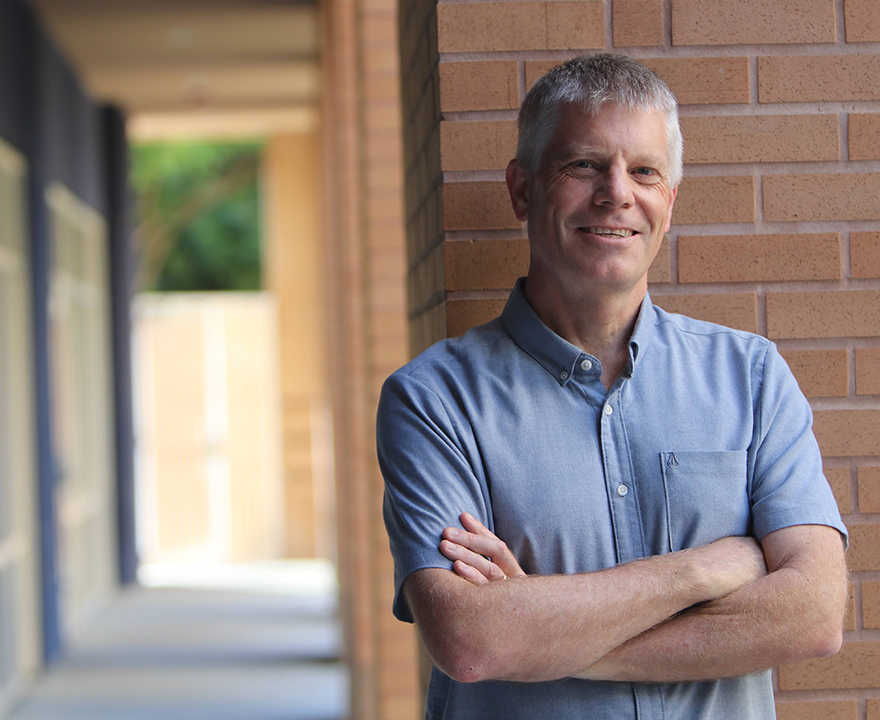UCI-led team receives Luce Award for outstanding research in mathematical psychology

UCI-led team receives Luce Award for outstanding research in mathematical psychology
- August 2, 2023
- Honor recognizes cognitive scientists for mathematical modeling work on Alzheimer's disease and human memory
A UCI research team led by Michael Lee (pictured), cognitive sciences professor, has earned the 2023 Society for Mathematical Psychology’s R. Duncan Luce Outstanding Paper Award. The honor, bestowed annually, recognizes their work, “An application of multinomial processing tree models and Bayesian methods to understanding memory impairment,” as the most outstanding paper published in the Journal of Mathematical Psychology in the preceding three years. For Lee, who both learned from and worked alongside Luce during his tenure at UCI, the honor holds both professional and personal meaning.
“In the field of mathematical psychology, there are few names more recognizable than Duncan Luce,” says Lee.
The late UCI Distinguished Research Professor of cognitive sciences & economics and 2005 National Medal of Science winner is hailed as one of the most influential figures in the social sciences for his work combining formal mathematical models and psychological experiments to understand and predict human behavior.
“It’s an honor to be recognized with an award bearing Duncan’s name,” says Lee.
Joining Lee in receipt of this year’s Luce award are co-authors Jason R. Bock, director of informatics at Embic Corporation and research associate in the UCI Department of Cognitive Sciences; Isaiah Cushman, ’19 UCI cognitive sciences; and Dr. William R. Shankle, director of the Memory and Cognitive Disorders program at Hoag Neurosciences Institute, chief medical officer at Embic Corporation, and research associate in the UCI Department of Cognitive Sciences.
Their work, published in 2020, makes heavy use of a model of human memory developed by another UCI cognitive scientist, the late Bill Batchelder. The researchers applied Batchelder’s model to understand how Alzheimer's disease affects different components of human memory. Using behavioral data from thousands of patients tested tens of thousands of times in a cognitive disorders clinic, they are able to model how learning, encoding, and retrieval processes change as memory impairment progresses.
“I have always been a believer that tackling real-world problems not only leads to applied outcomes, but also freshens and improves basic research,” says Lee. “Working with the researchers at Embic and their rich data on such an important societal problem has been enormously rewarding, and I am looking forward to continuing our decade-long collaboration.”
To read their award-winning work, visit https://www.sciencedirect.com/science/article/pii/S0022249620300146.
-Heather Ashbach, UCI Social Sciences
-photo by Luis Fonseca, UCI Social Sciences
Would you like to get more involved with the social sciences? Email us at communications@socsci.uci.edu to connect.
Share on:


connect with us: